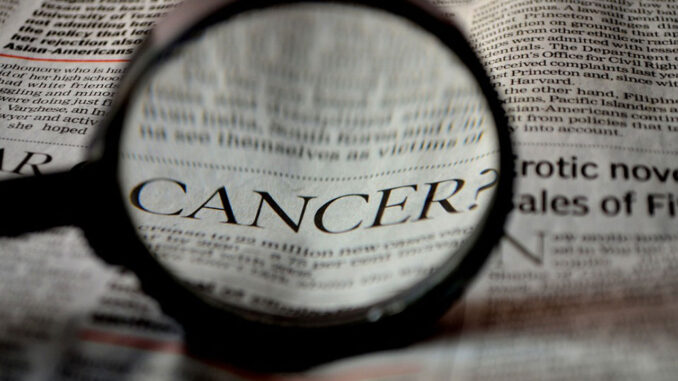
Sub-Saharan Africa suffers from a large and growing cancer burden. In sub-Saharan Africa, there are 626,400 new cancer cases each year and 447,700 cancer deaths. It is estimated that cancer incidence in Sub-Saharan Africa will rise by 85% in the next fifteen years due to population ageing.
Each year, cancer claims the lives of 72,000 Nigerians, with an estimated 102,000 new cases diagnosed. The most common types of cancer in Nigeria are breast and cervical cancer, accounting for ~50.3% of all cancer cases. It is concerning that Nigeria has a higher cancer mortality rate (i.e., higher mortality incidence ratio) than most other nations. For instance, whilst 19% of all breast cancer cases in the United States result in mortality, this ratio is 51% in Nigeria. Furthermore, cancer in Nigeria is characterised by late diagnosis, limited treatment options, and poor treatment outcomes. Access to treatment is delayed in 80-90% of patients, resulting in late stages of cancer at the time of presentation to a hospital.
The lack of well-coordinated national screening programmes has played a crucial role in most cancer patients’ late presentation. To enhance the acceptance of screening services in the short term, the government at all levels must coordinate existing screening programmes run by various groups. In the long run, all levels of government should integrate routine cancer screening into existing health services.
In addition to the high cancer death rate, the availability and quality of cancer data for Nigeria are poor. The Globocan (a global cancer research centre) data estimation system gives Nigeria a low grade for mortality and incidence data availability. The country’s cancer-reduction policy must be overhauled in light of this appalling reality.
The absence of enabling laws in Nigeria that lower Nigerians’ exposure to carcinogens, such as cigarette usage, alcohol use, food labelling, mandated vaccination, and expiration dates, has dramatically raised the number of cancer cases in the country. In the fight against cancer, laws increasing knowledge of these prevalent carcinogens would be crucial. There is a need for reasonable regulation, higher taxation on tobacco and alcoholic beverages, and improved awareness.
Cancer is treated with a multimodal strategy that includes surgery, chemotherapy, radiotherapy, nuclear medicine, and palliative care. The lack of a well-structured board at comprehensive cancer care centres in the country impacts the quality of care provided to cancer patients. Nigeria has only two comprehensive cancer care centres, one private and the other public. These comprehensive cancer care centres are expected to provide pathological, molecular, and imaging diagnostics and one or more of the following cancer treatment options: surgery, chemotherapy, radiotherapy, and nuclear medicine. There is too much pressure on these two centres.
Most of the time, these centres are unusable due to malfunctioning machines, thereby compromising Nigerians’ timely access to treatment. Other variables related to service availability have a detrimental impact on cancer control, exacerbated by the lack of coordination of operations in the curative care space. Cancer control in Nigeria is further compounded by widespread poverty, a lack of treatment centres, the high cost of cancer therapy, and limited health insurance services, resulting in low enrolment in the system. Implementing effective coordination mechanisms will help improve cancer control and treatment in the country.
Advocacy and social mobilisation are two other effective strategies for reducing cancer incidence in Nigeria. The ground is ripe for immediate action and advocacy for change through various forms of persuasive communication to create an environment conducive to improving cancer awareness, encouraging early presentation, reducing barriers to cancer control, and developing a comprehensive cancer advocacy plan. The increased use and reach of social media, existing mass media networks, and the expanding number of corporate organisations would strengthen advocacy to reduce the cancer burden in the country.
Nigeria can benefit from existing community health workers in a large-scale national cancer awareness campaign. Such campaigns will serve as a vehicle for identifying and addressing harmful behaviours and cultural attitudes to reduce the negative influence on our society. To mobilise the entire community in a sustained fight against cancer, a precise advocacy strategy for comprehensive cancer control would involve decision-makers, influential leaders and groups, and the general public.
Cancer control sensitisation activities are currently very low or non-existent at all levels of government in Nigeria. Although human resources are scarce for cancer advocacy, existing structures such as primary health care systems (PHCs), community-based groups, and health workers can help. Deploying the necessary tools and strategies is essential as Nigeria aims to reduce its cancer burden.
Aderinto, a doctoral researcher at the University of Sheffield, United Kingdom, is also a former Governance Team Leader of the International Younger Chemists Network (an affiliated organisation of the International Union of Pure and Applied Chemistry.
END

Be the first to comment